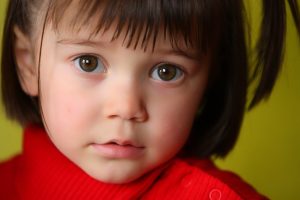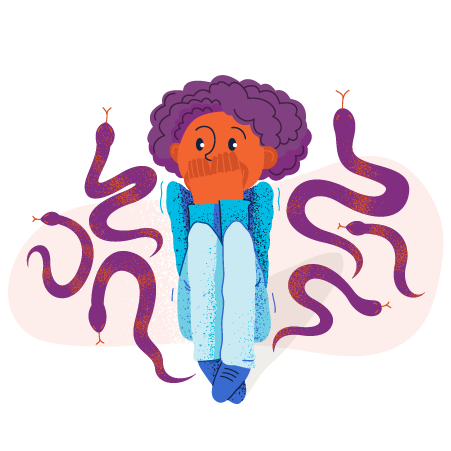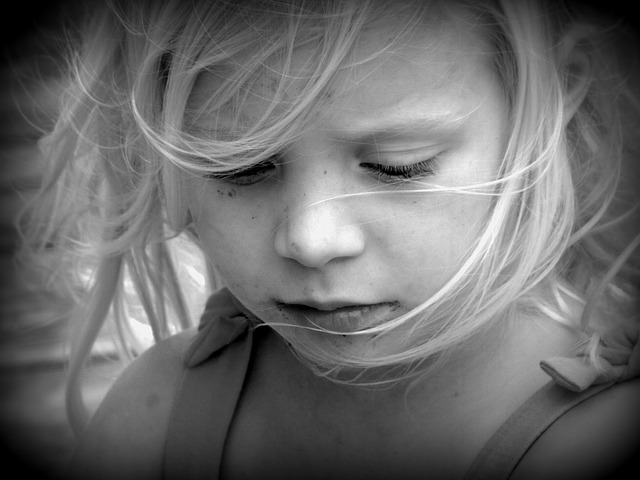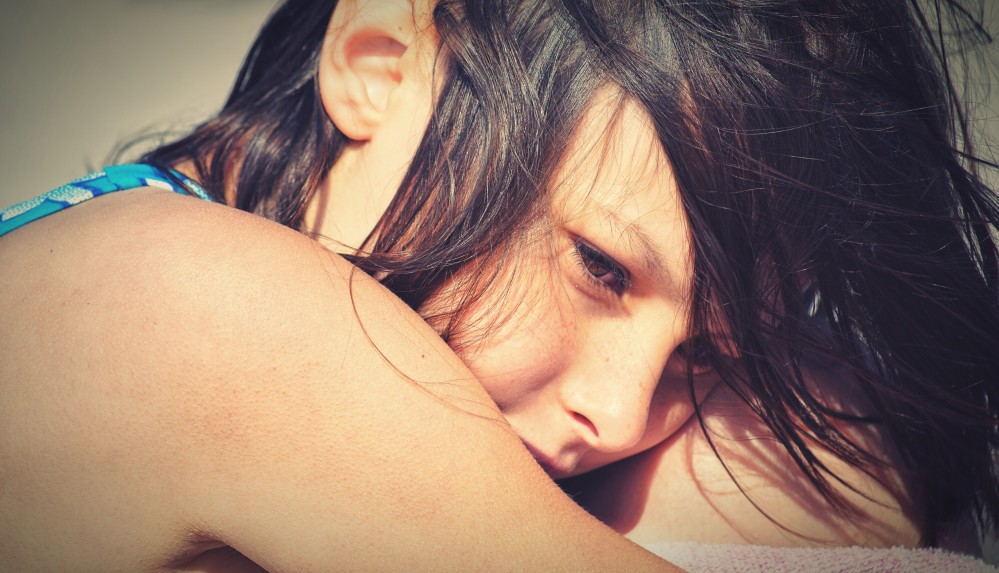6 Types of Anxiety that Can Affect Children
 There are many types of anxiety disorders, but the following are the disorders most common anxiety disorders experienced by children.
There are many types of anxiety disorders, but the following are the disorders most common anxiety disorders experienced by children.
Generalized Anxiety Disorder – If your child experiences excessive anxiety or worry that results in fatigue, irritability, muscle tension, difficulty concentrating, or sleep disturbances, then they may receive a diagnosis of generalized anxiety disorder. This worry may be about school performance, friendships, family relationships, or other activities or concerns.
Separation Anxiety Disorder – Some separation anxiety is developmentally appropriate, especially for children between 1-3 years old. But for older children, if they have excessive fear or anxiety about being separated from caregivers, then they may qualify for a diagnosis of separation anxiety disorder. Children with the disorder may frequently worry about parents dying or becoming separated from them. They may refuse to go out or go to school, have nightmares about separation, or experience physical symptoms like headaches or nausea due to this anxiety.
Selective Mutism – Children with selective mutism may refuse to speak in certain social situations, even though they are very talkative at home or wherever they feel comfortable. They may refuse to speak at school and withdraw from others or avoid eye contact. Children around the age of 5 are most commonly diagnosed with this disorder.
Specific Phobia – Some children may exhibit fear or anxiety about a specific object or situation. If this fear lasts a long time and is out of proportion to the actual danger posed, this fear may be classified as a phobia. Children will cry, freeze up, or cling to an adult when their fear is present. Children can have phobias that include (but are not limited to) animals, storms, needles, loud sounds, and enclosed spaces.
Panic Disorder – Children who experience recurring panic attacks and worry about having more may have panic disorder. A child having a panic attack may complain of symptoms that can include shortness of breath, chest pain, sensation of choking, nausea, dizziness, chill or heat sensations, fear of “going crazy,” and fear of dying.
Social Anxiety Disorder – If your child has an intense fear of having to participate in class or interaction with their peers, then they may have social anxiety disorder. Children may exhibit this fear through throwing tantrums, crying, clinging to adults, freezing up, or refusing to speak. They may also attempt to avoid social situations that provoke this fear.
Helping Kids with Anxiety
Anxiety is inevitable in life, but no child should have to feel stuck with it. What steps can you take today to help your child learn to manage anxiety successfully?
Parents often can feel helpless when they see their child experiencing intense fear or worry. There may be a temptation to simply remove the child from all situations that prompt this anxiety or to over accommodate for their child’s fear. These actions only make a child more sensitive to these environments. Parents can validate the child’s feelings but also model calmness and confidence that their child is going to be okay and can master scary situations like school or meeting new people.
Never hesitate to consult with professionals about your child’s anxiety, as they can guide you towards the right resources and conduct a proper assessment.
Excerpted from “6 Types of Anxiety that Can Affect Children” from Psycom. Read the full article online.
Source: Psycom | 6 Types of Anxiety that Can Affect Children, https://www.psycom.net/6-types-anxiety-and-kids, | © 2021 Remedy Health Media, LLC
If you have concerns about your child, CHC Care Coordinators can arrange a free 30-minute consultation so you can explore options with an expert. We invite you to call or email us at 650.688.3625 or careteam@chconline.org to set up an initial Parent Consultation appointment. CHC teletherapy services are available now.





